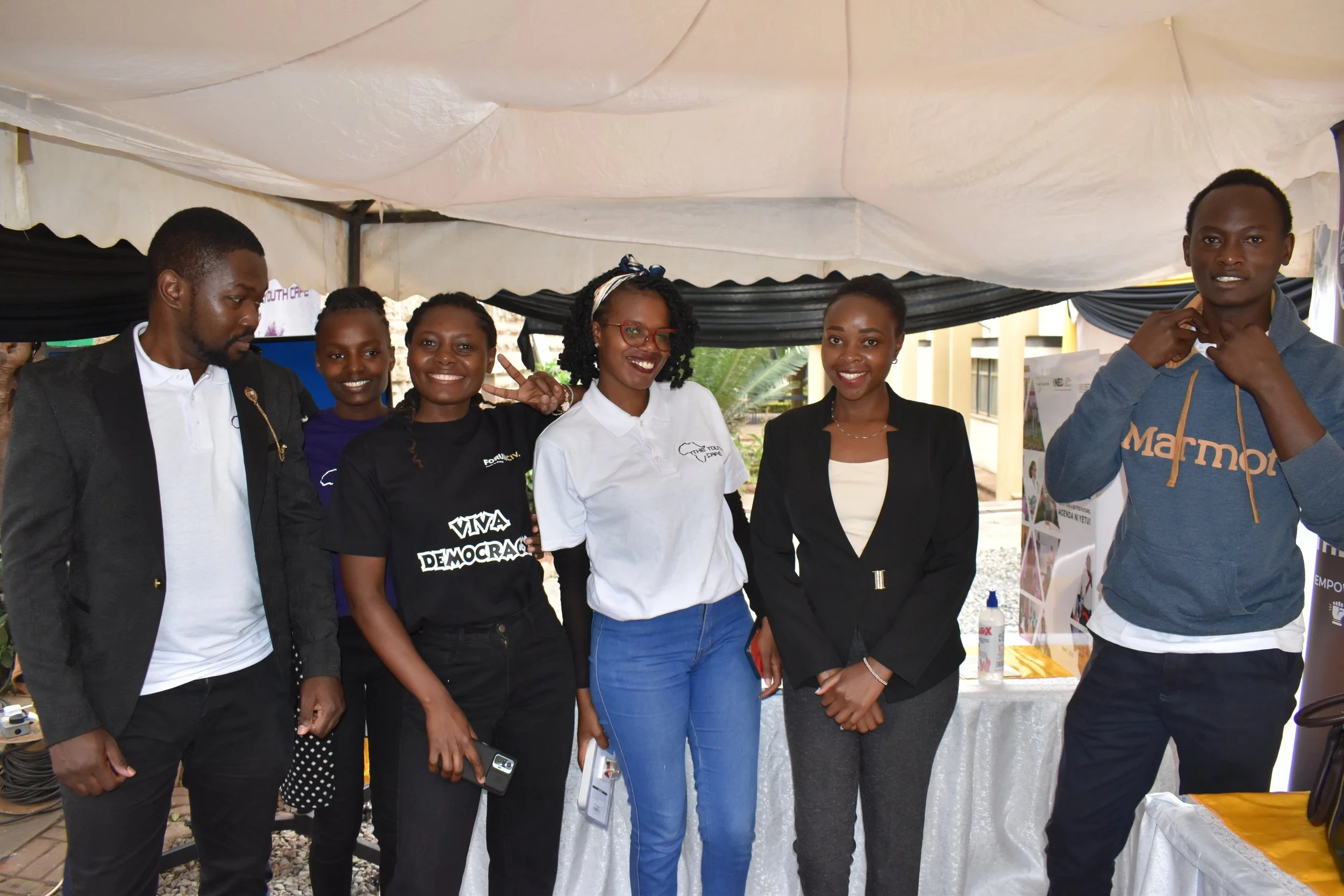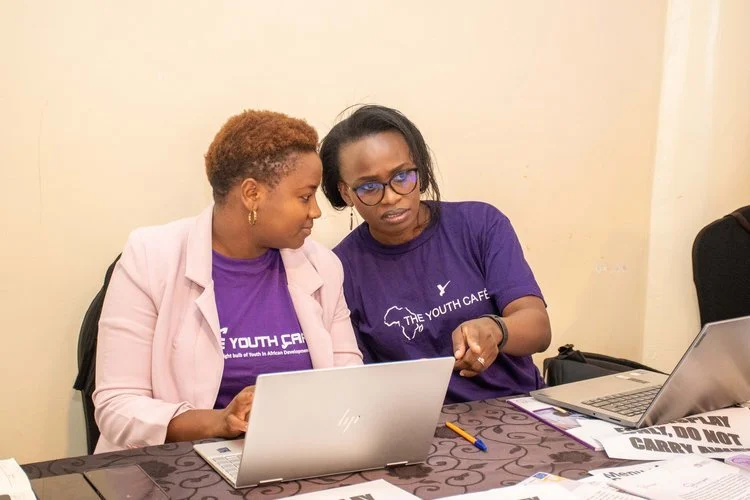We bring together the expertise of specialists from various sectors of youth development support (Democracy. Human Rights and Governance; Education, Research and Social Services; Economic Growth; Health and Well-being; Agriculture, and Environmental Sustainability; Talent Development and Innovation parliaments, etc.) on joint programs in which we apply our in-house methods for creating youth engagement and behavioural changes. The Youth Cafe and its members’ programmes focus on West, East, North, Central, and Southern Africa. The Youth Cafe is currently implementing the following select projects. Get in touch with us for more information.
The Youth Climate Action Network (YCAN) is an initiative designed to empower young people in Ethiopia, Kenya, and Uganda to become active leaders in climate action. Recognising that Africa contributes the least to global greenhouse gas emissions yet suffers disproportionately from the impacts of climate change, YCAN seeks to bridge the gap between awareness and action by equipping young people with the knowledge, skills, and platforms needed to respond effectively to the climate crisis.
The "Voices United" project aims to address the systemic marginalization of rural youth and women-led civil society organizations (CSOs) in Kajiado County, Kenya. By providing tailored digital advocacy training, networking opportunities, and leadership development, the project seeks to empower 1,000 youth and young women, helping them to actively contribute to governance and policy processes.
The project delivers a large-scale social media campaign alongside focused schools engagement in four countries, reaching more than 50,000,000 direct beneficiaries. The target countries are diverse, but they have a common need to strengthen resistance to risky, irregular migration. Many young people grow up in environments that encourage them to invest in offers from smugglers and traffickers.
The Digital Media Literacy and Youth Civic Reasoning in Kenya project empowers youth to combat misinformation, particularly during elections. By equipping young people with skills in fact-checking, online safety, and social media verification, the project promotes informed civic engagement and strengthens democracy. Key to the initiative is our Youth Media Literacy Handbook, supported by dynamic workshops, grassroots training, and community forums.
The African Union-European Union Innovation Platform (henceforth: AEIP or Platform) builds a network of African and European stakeholders strengthening links between innovation ecosystems in an inclusive and collaborative manner, ensuring equal benefits (as per the CONNECT destination of the Horizon Europe 2023-2024 Work Programme). The AEIP will be driven by the members of the consortium, many of whom collaborated successfully before on the Africa-Europe Innovation Partnership, an EU-funded initiative that paved the way for the AU-EU Innovation Agenda.
The Global Democracy Coalition (GDC) Forum 2025 African Regional Dialogue, led by The Youth Café in collaboration with regional GDC partners, will convene a diverse group of democracy advocates, civil society leaders, policymakers, and youth representatives. Set for March 28, 2025, , celebrating the intersection of democracy, environmental justice, and human rights. This unique timing amplifies the event's focus on the critical intersection between democratic resilience and environmental stewardship, rooted in Africa’s pressing socio-political and ecological challenges.
The Shamiri Model: Implement the Shamiri intervention, focusing on cultivating a growth mindset, gratitude practices, and value-aligned actions to reduce mental health problems and improve overall well-being.
The Sauti ya Vijana Nairobi Project seeks to encourage the establishment of receptive, open, and accountable leadership. The main goal of this project is to organize a roundtable with the theme "Building youth-adult partnerships in local governance" that will bring together 40 young people from various youth organizations to debate local governance issues across all sectors as a community of practice. The County Youth Advocacy Handbook will be developed, designed, and distributed as part of this project using the case studies.
The Youth Café initiative focuses on fostering youth engagement in civic and political spaces. By creating inclusive platforms for dialogue and collaboration, it aims to amplify young people’s voices and empower them to drive change within their communities.












ALIGN — Advancing Local Innovations for Adolescent Health & Nutrition through Governance and Networks (ALIGN) seeks to strengthen adolescent health and nutrition outcomes by empowering civil society organizations (CSOs) and youth-led organizations (YLOs) to design, scale, and integrate community-driven innovations into national health systems. Through capacity strengthening, knowledge sharing, and evidence-based advocacy, the project will ensure locally led solutions are institutionalized in policies, financing, and service delivery frameworks across 12 Global Financing Facility (GFF) partner countries in Africa.